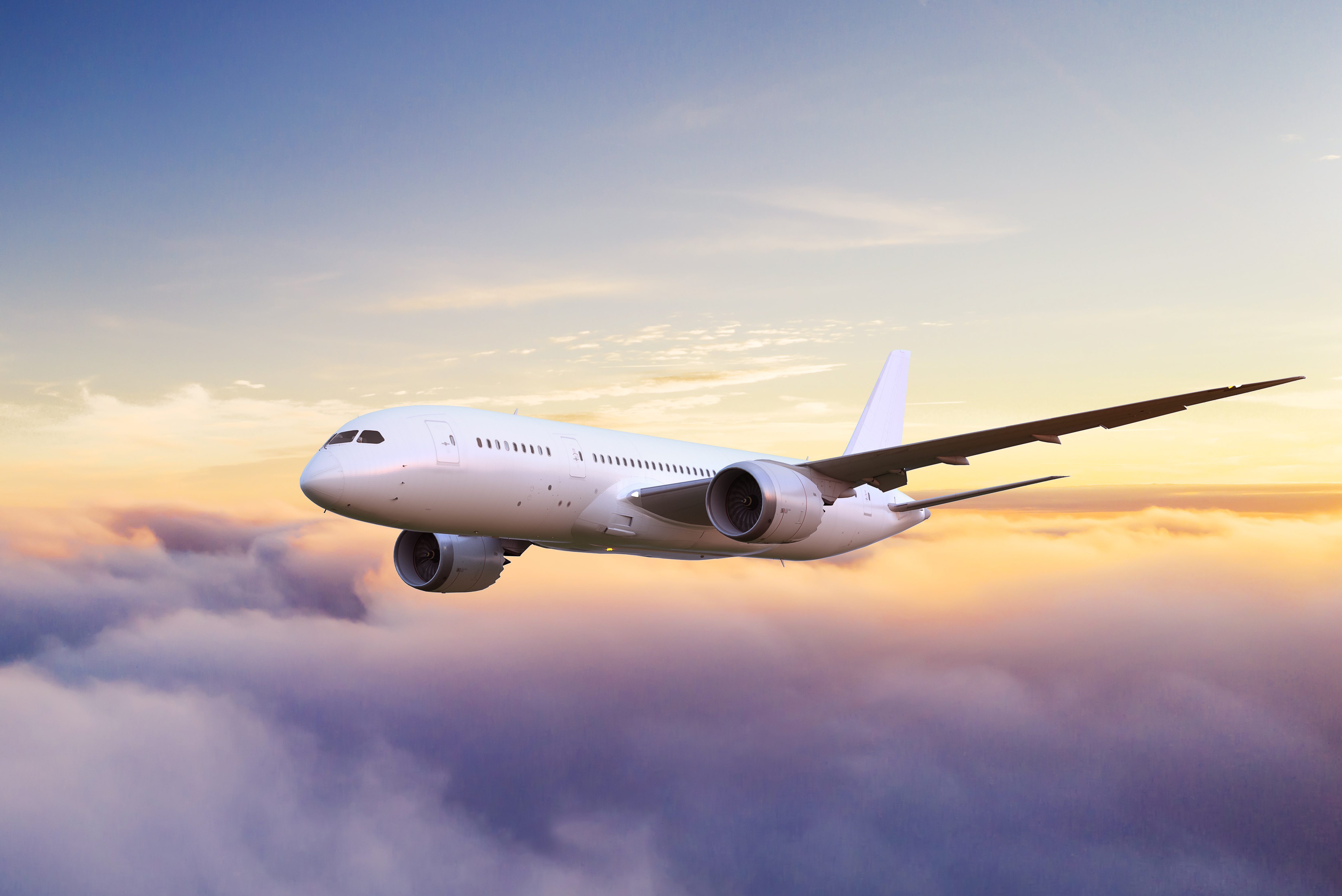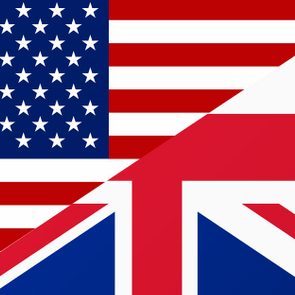There's a lot of history that goes beyond words—and the difference between the spellings of aeroplane vs. airplane is no exception

Why Is “Airplane” Also Spelled “Aeroplane”?

There are plenty of interesting airplane facts for air travelers to learn, like how high airplanes fly, what certain airplane sounds mean, why it tends to be cold on flights and more. Another interesting fact to think about is aviation language history—specifically, the grammar-sphere of why the word airplane is sometimes spelled aeroplane. Because really, what’s the difference between aeroplane vs. airplane?
You’re most likely familiar with the North American spelling of the word airplane. However, if you’ve ever booked an international flight heading to another English-speaking country like the United Kingdom, you’ve probably seen the word aeroplane instead. So what’s the difference between the British vs. American English spelling?
Reader’s Digest spoke with linguist Lynne Murphy, author of The Prodigal Tongue: The Love-Hate Relationship Between American and British English, to learn about the origin of aeroplane vs. airplane—and find out which one is really correct. Read on for the definitive answer.
Get Reader’s Digest’s Read Up newsletter for more fun facts, humor, cleaning, travel and tech all week long.
Which is correct—aeroplane or airplane?
Technically, both airplane and aeroplane are correct, since they’re the same word spelled differently. It has to do with many words in the English language coming from other languages, like Latin, Greek and French.
“British English has a general tendency to favo(u)r spellings and words that are reminiscent of French, whereas American English, when it has deviated from what British English does, often changes in the direction of seeming less French,” explains Murphy.
Even though both airplane and aeroplane have the same meaning, should they be classified as different words altogether? The answer is: sort of. “It’s not just spellings,” Murphy says. “They’re also pronounced differently, so I’d probably say they’re two different words.”
What is the meaning and origin of aeroplane vs. airplane?
Words, a lot of the time, come from other words. Sometimes, the words we use now are shortened versions of the original word, including shortening airplane to simply plane. “In the French from which it was borrowed, the ‘plane’ is related to a geometrical plane (flat surface), which then became the name of the flat parts of flying machines that allow them to achieve lift,” says Murphy. “The 19th-century French word aéroplane is made up of aéro, meaning ‘air,’ and the Greek word planos, meaning ‘wandering.'”
When did the spelling of airplane change in America?

The National Advisory Committee for Aeronautics officially adopted airplane as its term in 1916. But according to Merriam-Webster, the first known use of the word airplane was in 1906. This was about three years after the Wright brothers took to the air on the first successful flight with their “flying machine.” More than 20 years after the Wright brothers took flight, Charles Lindbergh became the first person to fly solo across the Atlantic nonstop, helping to cement airplane travel across the Atlantic and around the world.
“We’re comfortable with aero in scientific jargon, but as planes became more common things to talk about, the aero seemed too fancy,” says Murphy. “In Scientific American in 1906, there was already a claim that ‘Air-plane is a much better word than aeroplane. It is as good etymologically, and much better when it is spoken.’ It was considered by the BBC in the United Kingdom, but that proposal didn’t go anywhere.”
Which countries spell it as aeroplane?
According to the language-model toolkit Sapling, aeroplane is predominantly used not only in the United Kingdom but also in Ireland and other Commonwealth countries, including India, Australia and New Zealand.
What is the difference between aeroplane and airplane?
The differences between the words aeroplane vs. airplane go beyond the invention of the airplane. When the United States wanted independence from Great Britain, that also included dictionaries full of separate and distinct spelling of words. Spelling variations were more variant during that time than today. “Choosing the less ‘fancy’ spelling was something that Noah Webster, America’s first important lexicographer, did as a patriotic act: trying to make an English spelling system that was truer to English pronunciation and trying to promote a standard that would bring the disparate Colonies together,” says Murphy. “It took a long time for those spelling differences to really take hold.”
However, there’s a good reason why words that mean the same thing are spelled differently—and why that will continue to happen. According to Murphy, “Your spelling tells people where you’re from, and people are generally proud of where they’re from, so they continue to spell differently.”
About the expert
|
Why trust us
At Reader’s Digest, we’re committed to producing high-quality content by writers with expertise and experience in their field in consultation with relevant, qualified experts. We rely on reputable primary sources, including government and professional organizations and academic institutions as well as our writers’ personal experiences where appropriate. For this piece on aeroplane vs. airplane, former Reader’s Digest editor Madeline Wahl tapped her experiences as a journalist and an avid traveler. We verify all facts and data, back them with credible sourcing and revisit them over time to ensure they remain accurate and up to date. Read more about our team, our contributors and our editorial policies.
Sources:
- Lynne Murphy, linguist and author of The Prodigal Tongue: The Love-Hate Relationship Between American and British English
- Oxford Learner’s Dictionaries: “Aeroplane”
- Merriam-Webster: “Learn More About Airplane”
- History.com: “First Airplane Flies”
- NASA: “‘Airplanes’ or ‘Langleys’ and Other Tales of the NACA”
- Sapling: “’Airplane’ or ‘Aeroplane’”





















